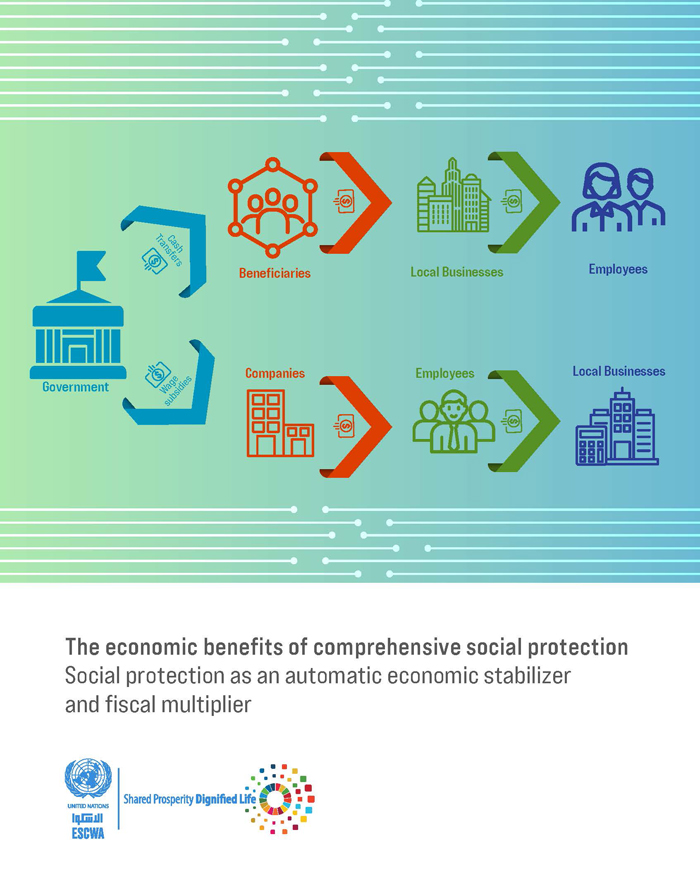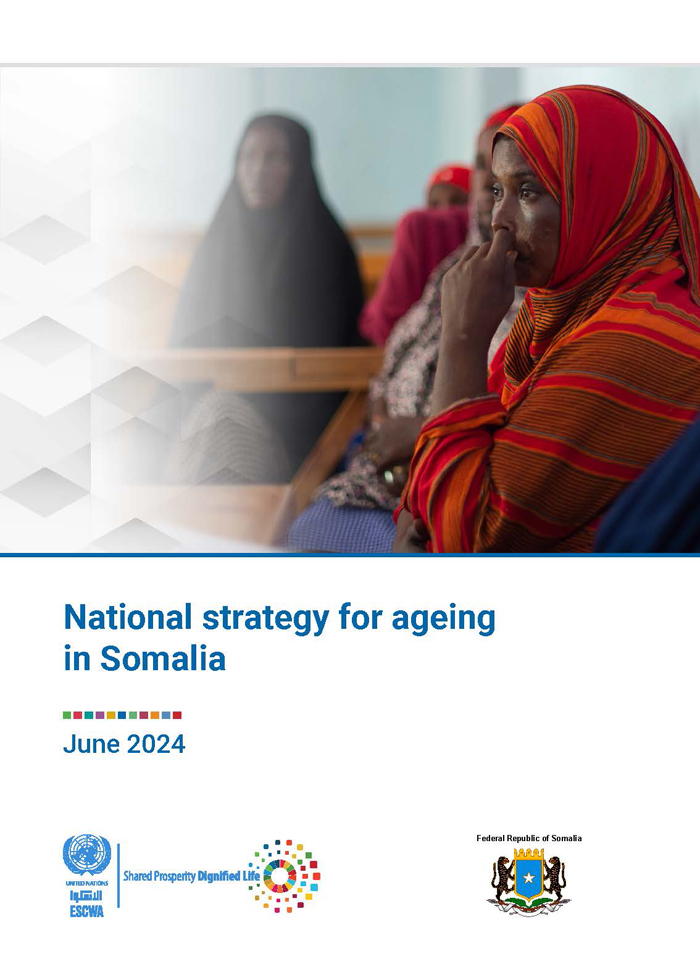
ESCWA Publication: E/ESCWA/CL2.GPID/2024/WP.1
Country: Arab region
Publication Type: Working papers
Cluster: Gender Justice, Population and Inclusive Development
Focus Area: Inclusive development
Initiatives: Reforming social protection systems
SDGs: Agenda 2030
Keywords: Arab countries, Brazil, Covid-19, Economic crisis, Economic stabilization, Jordan, Lebanon, Middle-income countries, Multiplier (economics), Public welfare, Social security, Subsidies, Tax deductions, Statistical data, Syrians, Refugees, Unemployment insurance, Wages
The economic benefits of comprehensive social protection: Social protection as an automatic economic stabilizer and fiscal multiplier
July 2024
This working paper explores the impact of comprehensive social protection systems on economic resilience and growth in the Arab region, particularly in the context of economic downturns and crises. The paper summarizes empirical data from various countries and case studies. It discusses the significance of “multiplier effects” which further augment the capacity of social assistance expenditure to boost local economies. The paper also highlights the role of social protection schemes as automatic stabilizers, policy mechanisms which adjust automatically in response to economic fluctuations to mitigate the impacts of fiscal shocks, thereby promoting quicker economic recovery. The paper concludes that beyond mitigating the immediate economic distress of affected households, social protection systems contribute to long-term economic development by enhancing consumption, improving labour market outcomes, and fostering a more resilient economic structure. The research emphasizes the strategic importance of proactively developing robust social protection systems in Arab countries with the aim not only of addressing immediate economic challenges but also of underpinning sustainable economic development. On the basis of these insights, the paper advises Governments to further integrate economic and social policymaking.
Related content
Inclusive development
,
This working paper explores the impact of comprehensive social protection systems on economic resilience and growth in the Arab region, particularly in the context of economic downturns and crises. The paper summarizes empirical data from various countries and case studies. It discusses the significance of “multiplier effects” which further augment the capacity of social assistance expenditure to boost local economies. The paper also highlights the role of social protection schemes as automatic stabilizers, policy mechanisms which adjust automatically in response to economic fluctuations to mitigate the impacts of fiscal shocks, thereby promoting quicker economic recovery. The paper concludes that beyond mitigating the immediate economic distress of affected households, social protection systems contribute to long-term economic development by enhancing consumption, improving labour market outcomes, and fostering a more resilient economic structure. The research emphasizes the strategic importance of proactively developing robust social protection systems in Arab countries with the aim not only of addressing immediate economic challenges but also of underpinning sustainable economic development. On the basis of these insights, the paper advises Governments to further integrate economic and social policymaking.



